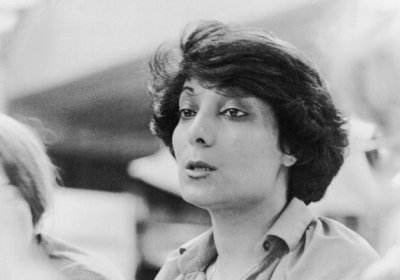Patrick Harrison
The Australian ran an article on May 2 that claimed “the boycott, divestment and sanctions movement has been caught on camera admitting ‘there isn't really any connection’ between Australian Max Brenner chocolate shops and Israel”. Below is a response by Palestine solidarity campaigner Patrick Harrison, who was quoted in the article. It was submitted to the Australian but not published. *** When I visited Israel and the Occupied Palestinian Territories in 2011 to take part in environmental volunteer projects, apartheid was plain to see.
Leila Khaled: Icon of Palestinian Liberation Sarah Irving Pluto Press, 2012 As one of the first of the Revolutionary Lives series of critical biographies published by Pluto Press, Leila Khaled: Icon of Palestinian Liberation could not have been a better subject.
- Previous page
- Page 2
- Next page








